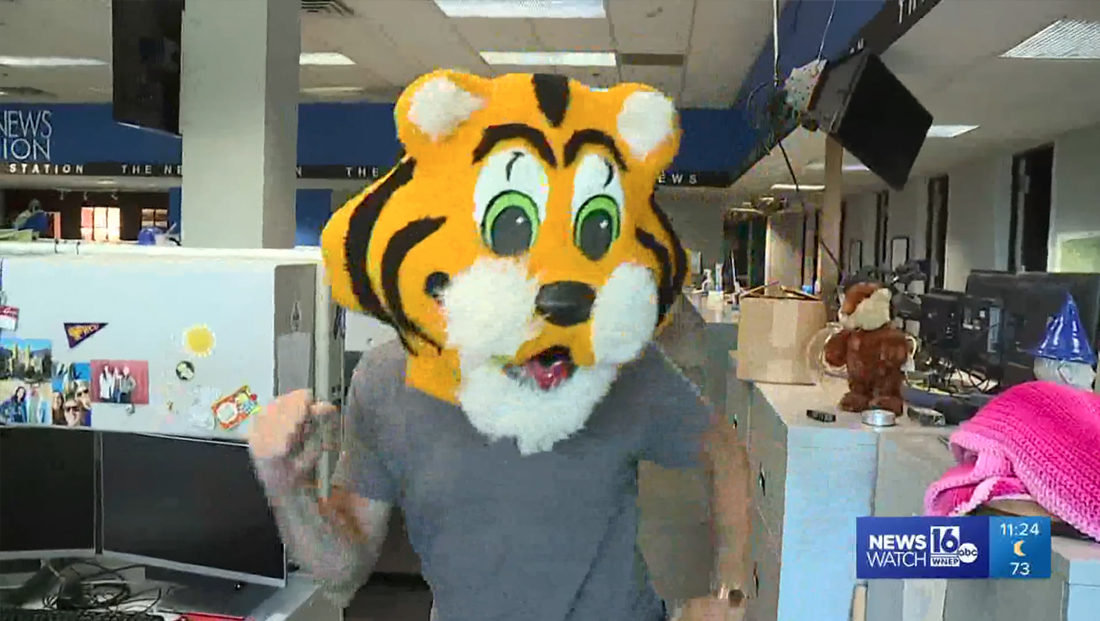Pa. viewer calls in about ‘obnoxious’ theme music: Gets an earful in return

Subscribe to NCS for the latest news, project case studies and product announcements in broadcast technology, creative design and engineering delivered to your inbox.
A Pennsylvania station’s news music has been the source of complaints from viewers in the past — but now one of its anchors offers up the “real” reason the station plays it.
WNEP, the ABC affiliate in Scranton/Wilkes-Barre, Pennsylvania, has used what’s commonly referred to as the “dance version” of the legendary “Move Closer to Your World” theme music used by WPVI in Philadelphia, for decades.
Technically speaking, the package is a separate one originally composed for WPXI in Pittsburgh, but WNEP is now the only station in the country to use it (and no other station but WPVI uses “MCTYW”).
Either way, at least one WNEP viewer doesn’t seem to care what the history of the music is.
“Every time I listen to that obnoxious music that you use as a filler leading into a story or ending a story, ‘bah bah bah ba boom,’ ‘bah bah bah ba boom,’ I just change the channel every time you start it,” declares what could only be described as a cantankerous old man from Old Forge, Pennsylvania.
“So we lose you with the music?” asks a faux-shocked anchor Scott Schaffer, who hosts a weekly segment called “Talkback Feedback” that responds, often in a humorous way, to a selection of calls made to the station’s Talkback 16 call-in line. Calls from the line, which can range from comments on the news of the day to the obscure and odd, typically play daily at the end of the station’s 5:30 p.m. news.
“You know that’s not a coincidence, Old Forge. We play that music every time we want someone to go away. Nothin’ personal,” says Schaffer facetiously before a clip of someone, presumably Schaffer based on the matching wristwatch, is shown dancing to the music, wearing the head of the station’s quasi-former mascot the Newscat.
Schaffer has similar responses to callers complaining about out-of-state people winning the lottery and bingo halls letting in underage players — as well as another favorite topic of debate on the Talkback lines, morning meteorologist Joe Snedeker, who many viewers have a love-hate relationship with.
Each complaint is addressed with another clip of the dancing Newscat, music blaring.
“Old Forge” appears to incorrectly refer to the “bah bah bah ba boom” part of the music being used “leading into a story” or “ending a story” when he likely really meant, at least in TV news parlance, leading into or out of a block (the parts of a newscast bookended by either another program or commercials). Most stations use a portion of their theme, often what’s known as the vamp, in these cases.
Vamps are usually simple series of repeating notes that are designed to play over and over again, seemingly on a loop. They often lack any specific melody making them better situated to play underneath a voiceover, instead relying more on a repetitive beat to define themselves.
When compared to signatures, the more prominent, melodic series of notes that often help “define” a news music theme, they are not quite as memorable (WNEP’s is a “dah dah dah dah dum”) but can still serve as an aural signal to viewers that the news is starting back up or getting ready to head to a break.
Many news music packages feature an extended vamp option with prominent end, often incorporating elements of the signature, that can be played to wrap the newscast as well. These vamp can be part of a clip offered in a set length, such as a few minutes long, and traditionally a production team member handling audio will start playing the clip when the newscast has exactly that many minutes until the outcue, but with the track “muted” so that viewers can’t hear it.
As the newscast draws to a close, the team member can fade in the music so that, during the final few seconds of the broadcast, the final notes play, bringing everything to a tidy close audio-wise.
This ending can also sometimes pop up when a newscast offerings an extra-long series of teases, which can sometimes also be combined with quickly weather segments and information such as lottery numbers, primetime lineups or stock market updates, when the music essentially “runs out” due to the length of time it runs.
Subscribe to NCS for the latest news, project case studies and product announcements in broadcast technology, creative design and engineering delivered to your inbox.






tags
Move Closer to Your World, news music, scranton, wilkes-barre, wnep
categories
Broadcast Industry News, Featured, Local News, Theme Music